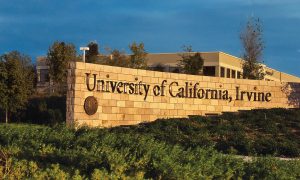Dear friends and colleagues,
We wish the whole of our COR community and beyond – Happy Holidays!
Before you start enjoying a well-deserved break, we ask you to put two exciting COR events on your schedule for early 2019.
Friday, January 18: COR paper development workshop with Professor Erin Lockwood on derivatives and financial regulation, UCI (discussed by Professors Bill Maurer and David Min)
Friday, February 22: COR Colloqium with Professor Kathrin Sele (Aalto University School of Business, Finland) on organizational routines of ordering food (which ends up ordering you!).
See below for more information and RSVP contact.
We look forward to seeing many of you at 2019 COR events!
Warmest wishes,
Nina Bandelj and Melissa Mazmanian
COR Co-Directors
* * * * * * * * * *
Friday, January 18, 2019, 12-1:30pm, SBSG 1321
Erin Lockwood, Assistant Professor of Political Science, UCI Discussants: Professor Bill Maurer (Social Sciences), Professor David Min (Law)
Title: Regulating Risk: Explaining the Unchecked Growth of Financial Derivatives
Abstract: This paper begins from the question of how the market for financial derivatives was allowed to grow as large as it did on the eve of the crisis in the absence of public regulation. The answer, I contend, can be found in the history of how derivatives markets evolved in close relationship with changing regulatory views of risk: what it is, who are the legitimate bearers of risk, and which actors deserve public protection from downside risk. Drawing on public regulatory documents, speeches, and testimony about derivatives from the early 20th century to the early 21st century, I trace the process through which derivatives came to be seen as legitimate financial products and the derivatives market as capable of self-regulation. The resulting analytical narrative shows that regulatory views of risk change in response to financial innovation, shifts in beliefs about the appropriate relationship between states and financial markets, and financial crisis. Regulatory understandings of risk have shaped how regulators have interpreted and regulated derivatives: financial innovations, which commodify risk itself. This analysis has important implications for understanding the regulatory response to the 2008 financial crisis and directs our attention to the conditions of possibility for future, potentially more effective, change in financial governance.
Please RSVP to cor@uci.edu by January 7 to receive the paper to read before the workshop.
* * * * * * * * * *
Friday, February 22, 12noon, SBSG 1321
COR Colloquium with Professor Kathrin Sele, Aalto University School of
Business, Finland
Title: “When the Food You Order Ends up Ordering You: A Rhythmanalysis Perspective on Temporal Order(ing)”
Professor Sele’s research focuses on organizational routines and their role in innovation and strategy making with a particular focus on sociomaterial and temporal aspects as well as on discursive practices and rhetorical strategies in legitimation processes. Dr. Sele completed her PhD at St. Gallen University. After graduation she worked at Toulouse School of Management first as a teaching fellow and then as a maître de conférences (assistant professor).
For more information: https://people.aalto.fi/kathrin.sele
